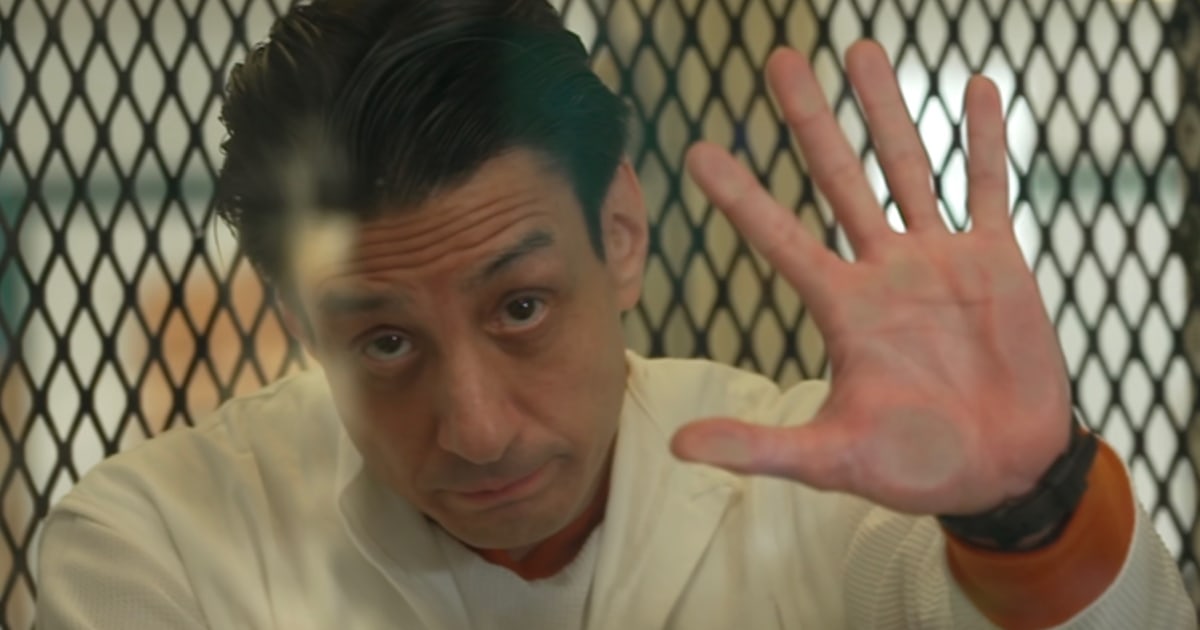- Click to share on Facebook (Opens in a new window)
- Click to share on Twitter (Opens in a new window)
- Click to share on LinkedIn (Opens in a new window)
- Click to email a friend (Opens in a new window)
Editor's Note: Joey Jackson is a legal analyst for CNN and HLN, and the founder of New York City-based J. Jackson Company, J. Jackson. The opinions expressed in this article are yours. Read more opinion notes on CNNE / opinion.
(CNN) - When Ahmaud Arbery, a 25-year-old black man jogged through Brunswick, Georgia, on February 23, he had no way of knowing that would lead to his death. Her murder raises troubling concerns in a country where jogging joins the scandalous list of dangers facing the black community.
Arbery's death has made headlines since the publication of a horrifying video earlier this week, which shows a former police officer and his son facing him, a confrontation that ended with Arbery shot dead.
After intense community pressure and outrage from civil rights activists across the country, the people allegedly responsible for Arbery's death were arrested until recently. This delay is unacceptable and raises multiple questions.
First, how did an unarmed black man, whose family said he had gone out for a run in the afternoon, been shot dead? Second, how come George E. Barnhill, one of the prosecutors from the neighboring town of Waycross previously assigned to the case, dared say a day after the shooting that he believed the attempted attempt by the father and son of Was making a citizen arrest "perfectly legal"? In the same report, he also challenged himself on the case. Third, since when does a prosecutor speak to suspects in a case in which he must decide whether they committed a crime? And finally, how fair and appropriate is it for a prosecutor to apply the “civil arrest” and “self-defense” laws so liberally in an effort to bypass prosecution?
- What we know about the murder of Ahmaud Arbery
While there is an ongoing investigation, the facts so far known about the behavior of Gregory McMichael, 64, and his son Travis, 34, are more than troubling. According to the police report, Gregory McMichael, a former Glynn County Police officer, told police they were chasing Arbery because they thought he was suspected of a series of robberies in the community.
Before the shooting occurred, only one incident in the neighborhood had been reported to police: that of a 9mm firearm stolen from a van at the McMichaels home on January 1.
But on February 23, someone at Satilla Shores called 911 to say that "a black man is running down the street" - Arbery - and that he could be responsible for a series of robberies.
The haunting 36-second video of the McMichaels' confrontation with Arbery shows Gregory McMichael in the back of a truck stopped on a residential street, and Travis McMichael standing with a gun near the driver's-side door.
Arbery is seen running toward the truck and then turns right to surround him. Once he's in the front of the truck, Arbery lunges to the left, toward Travis McMichael. They appear to be fighting in front of the truck, though much of the view is blocked by the truck, and then they are seen fighting alongside the truck and off camera, before returning to sight when the sound of three shots is heard. Then Arbery falls to the ground.
Initially, a citizen arrest cannot be made unless a crime is committed in the presence of someone trying to make the arrest or unless the citizen has “immediate knowledge” of a crime.
It is possible that the McMichaels thought they had such knowledge. They may have been alerted by the owner of a house under construction in the neighborhood, who told CNN he had a video showing a person who he said appeared to be Arbery in the house on February 23, just before of the fatal confrontation.
In a letter Barnhill sent to Glynn County Police Captain Tom Jump on February 24, the prosecutor notes, "It appears that Travis McMichael, Greg McMichael and Bryan William were 'fiercely' pursuing" a suspect. burglary with probable first hand cause in your neighborhood, and they were asking and telling you to stop. It appears that his intention was to detain and hold the suspect until the Police arrived. Under Georgia law, this is perfectly legal.
But this Barnhill assessment is flawed. No evidence has yet been presented to suggest that Arbery was involved in any robbery. So, how could the McMichaels possess “first hand solid probable cause” of a crime that does not appear to have occurred? Even more troubling, however, is the fact that a prosecutor issues a legal opinion after challenging himself. This is especially true when the challenge is based on the perceived bias that a potential conflict of interest implies. Apparently Barnhill's son and McMichael Sr. previously worked at a nearby prosecution.
- Video appears to show Arbery on construction site before shooting, says lawyer
If the owner was correct that Arbery was inside the house, which at that time was in the framing stage, it would constitute the crime of violation of private property. However, there would still be doubts about the legitimacy of the citizen arrest. If the McMichaels saw Arbery committing this raid, they could possibly establish that they had "immediate knowledge" that he did.
However, in this scenario, there would still be two major legal obstacles associated with Arbery's arrest. First, trespassing is a misdemeanor, under Georgia law. This is important because, as far as a possible fleeing suspect is concerned, the law only allows citizen arrest if a person has committed a serious crime and is “escaping or trying to escape”. But here, there seems to be no such situation. Second, there is no indication that Arbery was running in an effort to "escape or attempt to escape." His family says he jogged almost every day in the area. Perhaps, he simply continued on his way and resumed his career, after stopping to look at the construction site. That makes a monumental difference.
However, in the absence of a thorough investigation, Barnhill still exonerates the McMichaels in his letter. In the same document, he decks himself about having been a "criminal prosecutor for about 36 years." Someone with that track record should know better than anyone. It should also be clear that Barnhill is aware that the courts have flatly rejected the notion that irrational force can be used in citizen arrests.
To put this in its proper context, the Georgia Supreme Court has repeatedly made clear that "force is reasonable only under the circumstances of being used to contain the arrested individual." Therefore, every time the court determines that the force used is not justified by the specific facts presented, the citizen arrest will not have legitimacy.
To argue that the McMichaels should have brandished their weapons in the first place is questionable.
According to the narrative broadcast by Gregory McMichael, he and his son were innocent parties trying to make a peaceful citizen arrest when Travis was attacked by Arbery.
It's unclear what happened in the initial interaction between Arbery and Travis, but when the men get out of the front of the truck, they are both fighting with the shotgun. It seems to show that Arbery was trying to prevent him from being shot.
Barnhill also juggled in an effort to clear the McMichaels to argue that Travis McMichael opened fire in self-defense. In doing so, he invokes the concept of "self-defense" to suggest that the shooting was justified. Variations to this law, which has been enacted in 34 states, allow a person who is immediately afraid of death or serious physical injury to defend himself, without being required to withdraw.
- Two men involved in Ahmaud Arbery's fatal shooting arrested, GBI says
But there are multiple problems with Barnhill's analysis. First, under Georgia law, the McMichaels would have to establish that they reasonably believe that force was necessary to protect themselves against another person's "imminent use of illegal force".
However, it is quite difficult to argue that such force would be reasonable (even if they believed, as they claim, that Arbery was armed). The force used must be proportional to the threat posed. Aiming a gun and shooting an unarmed person trying to avoid being shot seems to me quite disproportionate. And for those who suggest that Arbery was involved in a violent fight for the gun, thus justifying being shot at, I would like to point out the possible problem with that vision. Under the law, the shooter cannot be the person who caused the use of force and then seek to benefit from the protection of the law.
Now, the McMichaels have been arrested and charged with murder and aggravated assault, according to the Georgia Bureau of Investigation.
Although Gregory McMichael was not seen firing a shot, under the law, he would be seen as an active participant, making him equally responsible for Arbery's death. Evidence that you helped and instigated your son by arming yourself, following Arbery, hunting him, detaining him, and making efforts to stop him is damning in this regard.
While those who evaluate the facts in this case may have different opinions and may also reach different conclusions, it is very difficult to frankly argue that the McMichaels had a reasonable belief that force was necessary. As such, there should have been, in my opinion, probable cause for having made an arrest the day this happened. Why this did not happen is really puzzling.
Fortunately, Barnhill dropped out of the case as a result of a conflict of interest. That's because of Greg McMichael's previous employment relationship at the Waycross DA's office with Barnhill's son.
As a result, the Georgia Bureau of Investigation (GBI) became involved and another prosecutor took over. Following the GBI investigation, the McMichaels were arrested and charged. Processing will then begin. Ultimately, a jury will decide the guilt or innocence of the accused.
The standard for an arrest is not determined by whether one is definitely guilty, but rather whether there is probable cause to believe that a crime has occurred. From the evidence we know, it appears that there should have been enough for the probable cause to be established immediately. Why it took so long to make arrests and seek justice really shakes faith in our system.
Jogging in broad daylight should not amount to a death sentence for a black person. And the fact that the justice system does not immediately address this fact is an offense in itself.
Ahmaud ArberyRacism








/cloudfront-eu-central-1.images.arcpublishing.com/prisa/D63VJ5JNOQ3PLNDWWVLTNFNOHQ.jpg)






